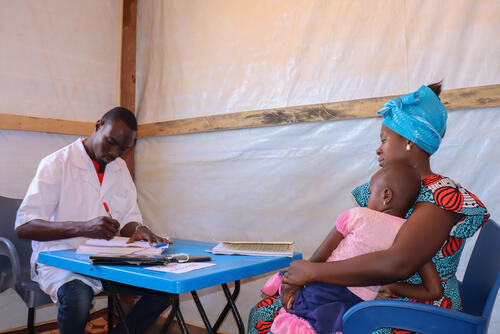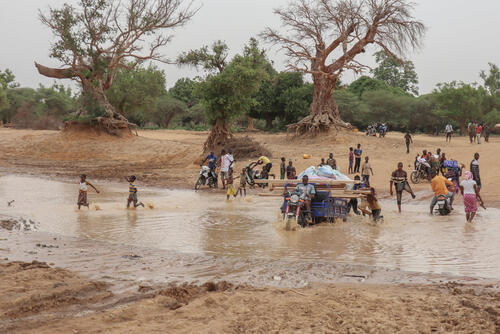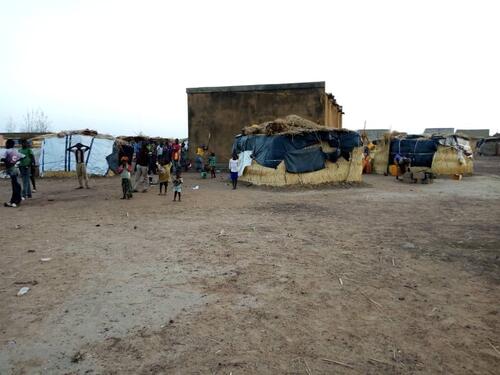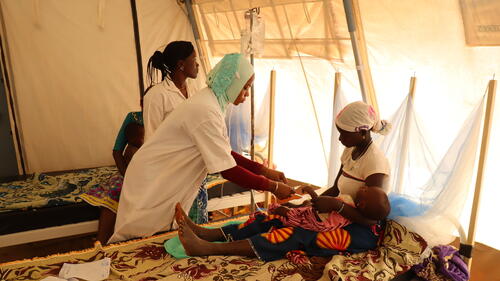Widespread violence has forced almost 840,000 people in Burkina Faso to flee their homes over the past few months.<a href="https://reliefweb.int/map/burkina-faso/burkina-faso-r-partition-des-personnes-d-plac-es-internes-par-districts-au-25-mars">Relief Web</a> Djibo, a town in the Sahel region that had about 36,000 inhabitants in 2012, now hosts more than 140,000 displaced people.
It is now even harder for people to reach healthcare services. Throughout the country more than 100 health facilities have been closed in areas affected by the violence, with others operating at minimum capacity.
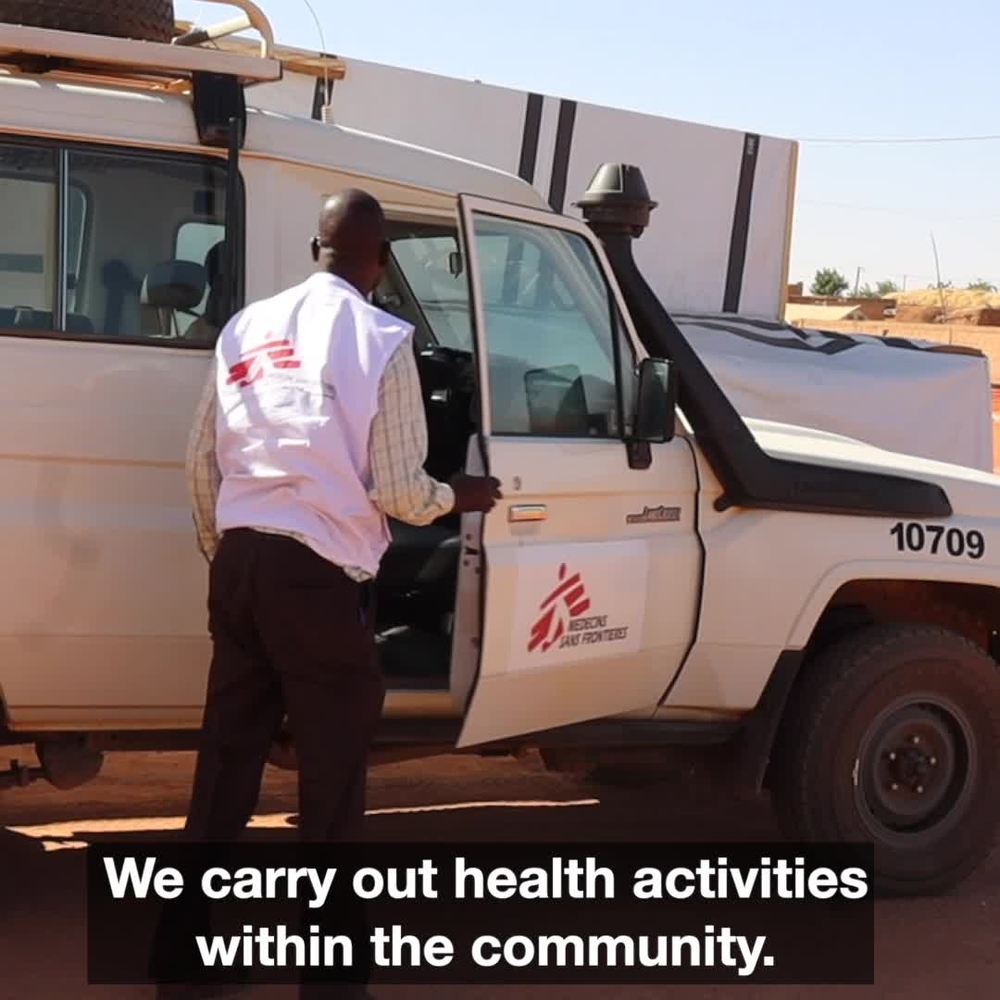
Access to healthcare becomes more difficult in Burkina Faso
Médecins Sans Frontières (MSF) has been working in the surgical ward and emergency room of the Djibo medical centre since March 2018, helping to improve the quality and availability of secondary healthcare for both displaced and host communities.
We have also opened two advanced health posts for primary healthcare, offering services such as malaria or prenatal consultation, and have been distributing clean water to help the displaced and host communities to cope with the situation.
With growing insecurity around Djibo in recent months, it has become more difficult to access people living on the outskirts of the city. To reach people, MSF has set up and trained a network of community health workers to treat children under five suffering from common ailments such as malaria, diarrhoea and minor respiratory infections.
When you go to the medical centre, you can spend the whole day there waiting for a consultation because there are too many patients. But we are grateful that we have access to medical care at all.Salam, a patient who has come to Djibo medical centre with his two children.
Preparing for the seasonal peaks in a COVID-19 context
MSF medical teams are providing primary healthcare to people in Barsalogho and Kaya in the Centre-North region, Gayeri and Matiacoali in the East region, and Titao and Ouindigui in the North region.
In addition to supporting the urban health centre in Titao, we are running mobile clinics to provide healthcare to people in remote areas. One of the main health issues our teams are seeing is malaria, and this is likely to worsen during the annual malaria peak starting in June.<a href="https://reliefweb.int/report/burkina-faso/le-pam-alarm-par-les-chiffres-de-la-faim-au-sahel-alors-que-le-covid-19-se">Relief Web</a>
“Last year, malaria was the most common medical issue among our patients,” said Hassan Maïyaki, MSF's Head of Mission in Burkina Faso. “We now fear the worst as the seasonal peak between May and October is approaching, many health facilities have closed and people are stranded in inaccessible areas with a very limited access to health services.”
We now fear the worst as the seasonal peak between May and October is approaching, many health facilities have closed and people are stranded in inaccessible areas with a very limited access to health services.Hassan Maïyaki, MSF Head of Mission in Burkina Faso
At the same time, these communities are struggling to survive in precarious living conditions, with a lack of access to water and food shortages. According to the World Food Programme, the number of people suffering from food insecurity could double from just over 1 million to 2.1 million as the annual food shortage season approaches in June .
Last year's harvests were poor, and people are already weak and vulnerable. Between January and March, months before the start of the ‘hunger gap’, our teams took care of close to 400 malnourished children in Barsalogho, Gayeri and Matiacoali.
“In such an unstable security context, with a weakened health system and difficult access to populations, humanitarian organisations, including MSF, are finding it difficult to prepare for this critical period,” said Maïyaki. “And the COVID-19 pandemic is going to make our task that much harder.”
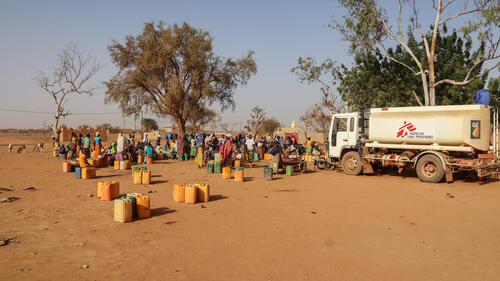
Integrating a COVID-19 response
Since Burkina Faso confirmed its first new coronavirus case on 9 March, the country has seen a rapid increase with outbreaks in nine of its 13 regions.
MSF is preparing to support the health authorities’ COVID-19 response through a number of initiatives, including health promotion, staff training and strengthening the capacity of health facilities to manage and care for COVID-19 patients.
This includes infection prevention and control measures and setting up isolation areas. We are also preparing to support case management in the capital Ouagadougou, and have started patient care in a dedicated facility in Burkina Faso’s second-largest city, Bobo Dioulasso.
We have to make it clear for all stakeholders and donors that any COVID-19 response must be integrated with other major health programmes, including measles, malaria and malnutrition.Hassan Maïyaki, MSF Head of Mission in Burkina Faso
A priority for MSF teams will be to continue our regular medical activities in Burkina Faso, while adapting to the new challenges created by the outbreak. In Fada N’Gourma in the East region, for example, the team had to temporarily suspend and reorganise a mass measles vaccination campaign due to new regulations about mass gatherings.
The vaccination campaign will resume in the coming days. In western Burkina Faso, an area already affected by the COVID-19 pandemic, an MSF team has just completed a measles vaccination programme in Mouhoun province. More than 72,000 children under 10 years were vaccinated in Dedougou, and close to 37,000 under 14-year-olds in Boromo.
“Temporary interruptions of preventive programmes, such as seasonal malaria chemoprevention or measles vaccinations, could trigger new outbreaks,” said Maïyaki. “We have to make it clear for all stakeholders and donors that any COVID-19 response must be integrated with other major health programmes, including measles, malaria and malnutrition.”
“Seasonal shocks, such as the period of food shortages or the seasonal malaria transmission peak, will soon affect people across Burkina Faso and young children in particular,” Maïyaki continues. “We must be fully prepared for the post-COVID-19 situation, as its indirect consequences could lead to a new phase of emergencies if basic needs are not met.”
MSF has been working in Burkina Faso since 1995. Since 2018, MSF teams have been present in Djibo, supporting the emergency room of the medical centre. In 2019, MSF increased the volume of its activities throughout the country. Our teams are now working in Barsalogho and in Kaya, and are about to start activities in Kongoussi. MSF is also continuing its assistance to people in Titao, Ouindigui, Matiacoali, Gayeri, Nagaré and Fada N'Gourma. In March, following attacks in Yatenga province, our teams began providing medical consultations and water to thousands of people who had taken refuge in Ouahigouya, the capital of North region.



